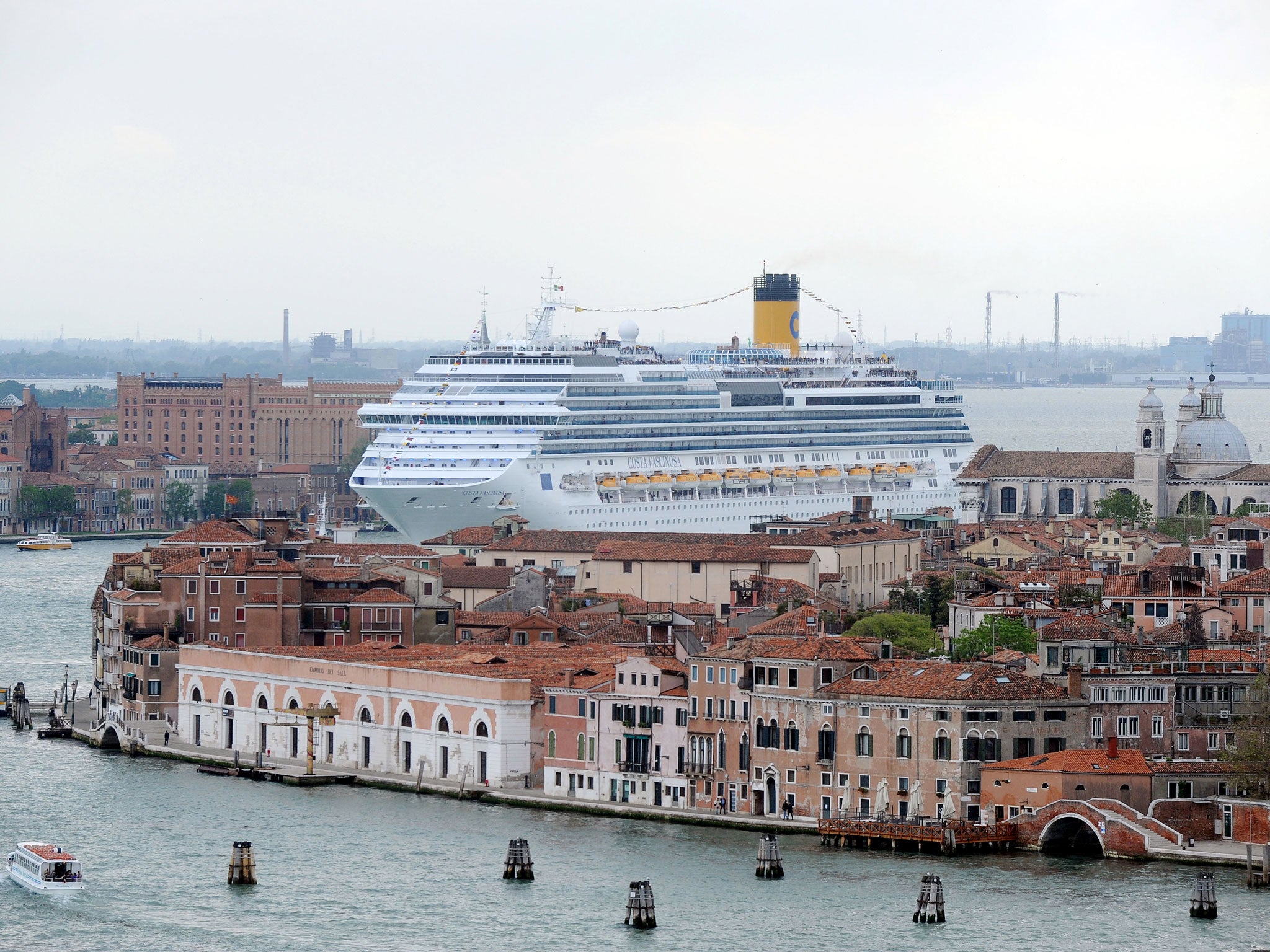
Your support helps us to tell the story
This election is still a dead heat, according to most polls. In a fight with such wafer-thin margins, we need reporters on the ground talking to the people Trump and Harris are courting. Your support allows us to keep sending journalists to the story.
The Independent is trusted by 27 million Americans from across the entire political spectrum every month. Unlike many other quality news outlets, we choose not to lock you out of our reporting and analysis with paywalls. But quality journalism must still be paid for.
Help us keep bring these critical stories to light. Your support makes all the difference.
The row over the presence of giant cruise ships in Venice’s lagoon was reignited this weekend after claims that a huge vessel belonging to the same company as the wrecked Costa Concordia sailed dangerously close to St Mark’s Square.
The city’s environment councillor Gianfranco Bettin said the 100,000-tonne Carnival Sunshine passed within 20 metres of the water front at Riva Dei Sette Martiri, 800 yards past the famous piazza, on Saturday morning.
Mr Bettin said witnesses had reported the incident. “The impression is that there was an error in manoeuvring, which among other things resulted in a water taxi being caught between the 272-metre vessel and the shore.
“We would like to know the real reason for this sail-by, which appeared more like a scrape than a salute,” he said.
The writer Roberto Ferrucci, was one witness, He told the Venice edition of Corriere della Sera: “I was sitting at the bar reading and I saw the ship docking; rather than moving to the centre of the canal, it brushed the shore dangerously trapping a water taxi. It was incredible.
“And it’s not the first time it’s happened; it occurred with another ship 10 days ago. Afterwards that one straightened up, but it made quite an impression.”
This month the trial begun of Francesco Schettino, who was captaining the Costa Concordia vessel when it crashed onto rocks off the Tuscan coast in January 2012 with the loss of 32 lives. The vessel allegedly made a risky sail-by “salute” to the island of Giglio. Some people claimed such sail-bys were commonplace.
Carnival Cruises, the US parent company of Costa Cruises, made a statement denying that its vessel had performed any abnormal or risky manoeuvres in Venice on Saturday morning, however. “At that moment, the ship was under control of the captain and the distance from the shore was verified by both Carnival and the coast guard with the voyage data recorder,” it said.
But the claims have once again raised concerns over the presence of such huge vessels in Venice’s Giudecca Canal.
The environment minister, Andrea Orlando, said he was aware of the claimed incident on Saturday morning, and that the government was working to regulate the presence of such large ships in Venice’s lagoon.
The spokesman for Venice’s No Big Ships Committee, Silvio Testa, said that Saturday’s events showed the authorities’ claims that such huge vessels represented no safety risk were not be believed, and that the vast cruise liners were “incompatible with the city and the lagoon”.
In addition to aesthetic objections at seeing the giant liners blot out the sun in the evocative lagoon city, Mr Testa says the huge amounts of pollution produced by the vessel is a serious concern. His committee says the biggest vessels produce the same amount of pollution in an hour as 15,000 cars.
The acid nature of the fumes is thought to speed up the erosion of the city’s medieval buildings, which are already sinking into the lagoon -- a process exacerbated by the currents produced by the enormous vessels, that sweep down the Giudecca Canal close to St Mark’s Square.
Campaigners say the ships’ vast bulk displaces huge quantities of water that surges into the smaller canals of the fragile city.
Subscribe to Independent Premium to bookmark this article
Want to bookmark your favourite articles and stories to read or reference later? Start your Independent Premium subscription today.
Join our commenting forum
Join thought-provoking conversations, follow other Independent readers and see their replies
Comments